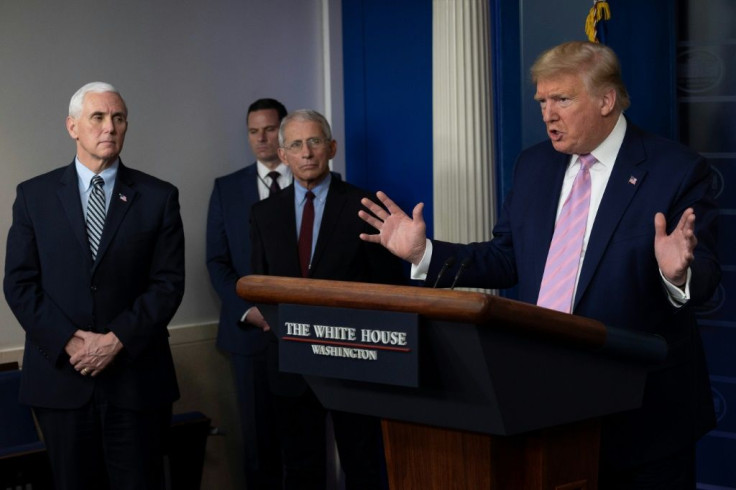Unemployment Claims Continue To Surge, But Will They Jeopardize Trump’s Reelection Chances?

KEY POINTS
- Historically, high unemployment usually leads to incumbent presidents losing reelection
- 6.6 million filed for unemployment last week, totaling 17 million in the last 4 weeks
- Data shows that Trump is more insulated from economic strife than most previous presidents
President Donald Trump has been betting much of his reelection chances on a strong economy and low unemployment, but the latest figures from the Department of Labor reveal that another 6.6 million Americans applied for unemployment in the week ending April 4 amid the COVID-19 pandemic. That brings the total jobless claims filed in the last four weeks to a staggering 17 million, since the coronavirus shut down the U.S. economy.
Many experts expect the coronavirus-induced downturn to push the economy into a recession that will last well into November, when the presidential elections are due, and beyond. The Congressional Budget Office projected on April 2 that they “expected the effects of job losses and business closures to be felt for some time; the unemployment rate underlying the cost estimate was 9% at the end of 2021.”
President Bill Clinton famously -- and correctly -- once said, “it’s the economy, stupid.” Historical correlations between the unemployment rate and presidential election outcomes are extremely strong too. Forbes compiled data from 1976 to 2012, which showed that, save for 1976 when Jimmy Carter beat Gerald Ford and a Republican Party still reeling from the Watergate scandal, every election in that period followed the unemployment rate. If unemployment was falling, the incumbent president was reelected. If the rate rose, the incumbent lost reelection.
Trump is someone who has recognized the importance of this correlation more than anyone else. A robust economy has been the leitmotif of his tweets till the coronavirus pandemic struck the U.S., and he has started hammering on that theme again now that focus is slowly shifting to restarting the economy.
The president tweeted Wednesday: Once we open up our great country, and it will be sooner rather than later, the horror of the Invisible enemy, except for those that sadly lost a family member or friend, must be quickly forgotten. Our economy will BOOM, perhaps like never before!!!
However, there is also evidence that our present era may not resemble past ones. Elliott Morris, a journalist at The Economist, has found that President Trump’s approval rating is not as strongly tied to the economy as that of past presidents.
Morris tweeted a plot of the correlation Tuesday (April 7): "Ugly but informative plot: Trump's approval rating is much higher than the poor state of the economy would suggest, fitting with theories that economic perceptions/actual conditions have limited influence over voters' attitudes in 2020 (and during a pandemic...)."
"Maybe the recession takes a little time to kick in. Or maybe this is a pretty robust pattern that has been evident throughout Trump's presidency in a variety of measures!"
Maybe the recession takes a little time to kick in. Or maybe this is a pretty robust pattern that has been evident throughout Trump's presidency in a variety of measures! pic.twitter.com/bfaPAUnFIA
— G. Elliott Morris (@gelliottmorris) April 7, 2020
Trump’s approval rating could still follow that of past presidents who have faced economic crises; but his ability to shift the debate and warp voters’ perception of political reality does seem to insulate him a bit from external events.
One of the biggest issues that political scientists face in assessing Trump’s reelection chances is the fact that both he and the present moment have little historical precedent. The current era is a new political world with different rules. While the historical precedent of high unemployment leading to a reelection loss for presidential incumbents still seems to be at play, Trump himself is a wildcard who can alter those outcomes.
© Copyright IBTimes 2025. All rights reserved.




















